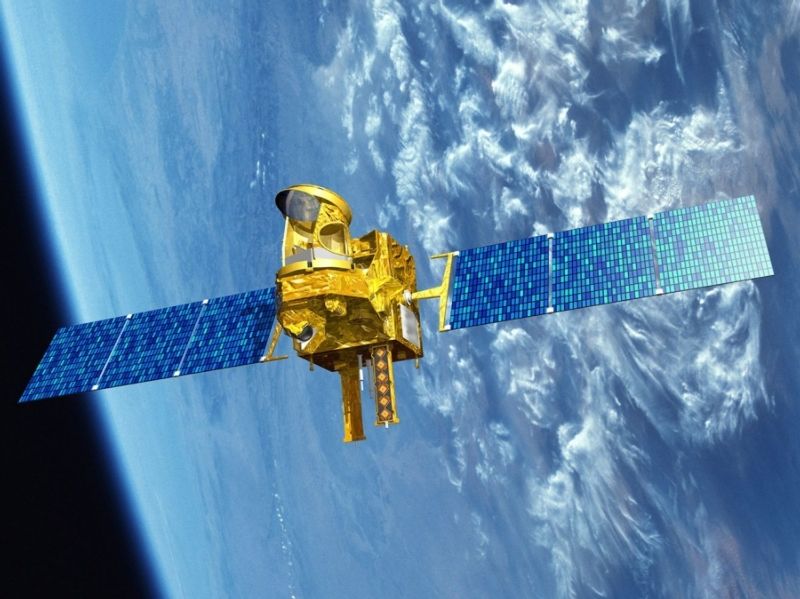France and India have agreed to extend their joint Megha-Tropiques climate-monitoring satellite mission launched five years ago. CNES President Jean-Yves Le Gall and AS Kiran Kumar, Chairman of the Indian Space Research Organization (ISRO), signed a four-year extension of the mission on 6th October in Paris. Kiran Kumar travelled to Paris following his visit to the Guiana Space Centre for the successful Ariane 5 launch of India’s GSAT-18 satellite.
The Megha-Tropiques mission is delivering a dynamic three-dimensional picture of different states of water in the atmosphere. The main feature of the satellite is the combination of its instruments and its position over the inter-tropical belt, in a low-inclination orbit enabling up to five revisits to the same location every day. This unique capability has allowed it to achieve remarkable progress in estimating rainfall and forecasting cyclones, monsoons and droughts.
Continuous monitoring of the turbulent giant tropical convection spots, where most extreme weather phenomena form, provides a better understanding of the cycles affecting mid-latitude countries and is extremely valuable for the global climate science community. The mission has already given rise to some 90 published scientific articles and more than 1,400 citations.
CNES and ISRO are this year celebrating 15 years working together in climate monitoring from space. The first agreement signed in 2001 led to the launch of two French-Indian climate-monitoring satellites, Megha-Tropiques in 2011 and SARAL-AltiKa, an oceanography and data collection mission, in 2013. Both satellites have delivered highly valuable data in fields such as freshwater resource management, agriculture and fisheries, operational oceanography and disaster management.
CNES and ISRO have now decided to engage new joint climate missions. The French Argos data-collection instrument will fly on the Indian Oceansat-3 satellite in 2018. France and India have also begun development of a future joint thermal infrared observation satellite.

